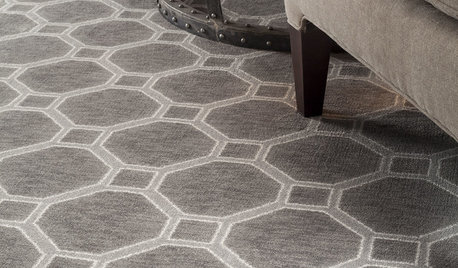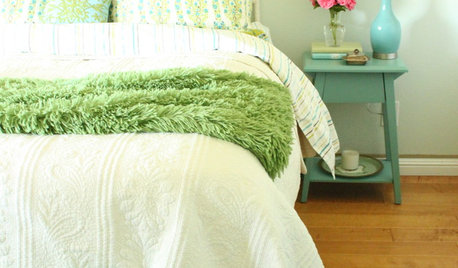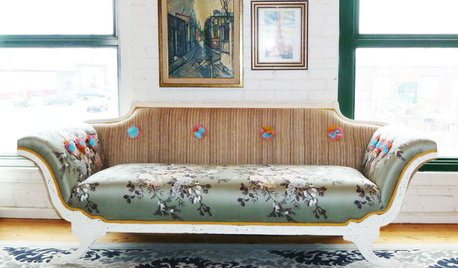Why isn't cotton fabric pre-shrunk?
meldy_nva
10 years ago
Related Stories

UPHOLSTERYFabric Focus: Cozy, Carefree Cotton
Here’s why you should consider making cotton king in your home decor
Full Story
DECORATING GUIDES8 Ways to Enjoy the Purity of Cotton at Home
There's much more to cotton than clothes. Bedding, upholstery and even headboards let you luxuriate in this natural fabric in every room
Full Story
UPHOLSTERYFabric Focus: 6 Ways to Bring Ticking Stripe Fabric Home
From window treatments to upholstery and more, here are ways you can decorate with this decorative workhorse of a fabric
Full Story
HOUSEKEEPINGDon't Touch Another Stain Before You Read This
Even an innocent swipe with water may cause permanent damage. Here's what to know about how rugs and fabrics react
Full Story
UPHOLSTERYFabric Focus: Thick, Textured Matelassé
Classic and understated, matelassé gives a quilted look without the bulk for bedding, upholstery and more
Full Story
PETS5 Finishes Pets and Kids Can’t Destroy — and 5 to Avoid
Save your sanity and your decorating budget by choosing materials and surfaces that can stand up to abuse
Full Story
DECORATING GUIDESTextile Textbook: Vintage Fabrics Tell a Story
We share a dozen ways to honor the past with heirloom textiles
Full Story
FURNITUREObjects of Desire: Recliners That Don’t Look Like Recliners
Forget bulky, hulky eyesores. These 7 smart and svelte chairs — some without levers — have mastered the art of disguise
Full Story
MATERIALSFabric Focus: Dive Into Graphic, Soft Damask
Popular since the Middle Ages, this woven fabric is coveted for its timeless patterns and varied textures
Full Story
GREEN DECORATINGBamboo Products — Earth Friend or Foe?
The ecofriendliness of this grass for flooring, wall coverings and furniture isn't cut and dried. Get the facts here
Full StoryMore Discussions







toolgranny
littlehelen_gw
Related Professionals
Medford Furniture & Accessories · Toledo Furniture & Accessories · Anaheim Flooring Contractors · Chesapeake Flooring Contractors · Emmaus Flooring Contractors · Green Bay Flooring Contractors · Merritt Island Flooring Contractors · Miami Flooring Contractors · Montgomery County Flooring Contractors · Patterson Flooring Contractors · St. Louis Flooring Contractors · Chambersburg Furniture & Accessories · Minneapolis Furniture & Accessories · Asheville Furniture & Accessories · Indian Creek Furniture & AccessoriesK8Orlando
geezerfolks_SharonG_FL
janice__indiana5
calliope